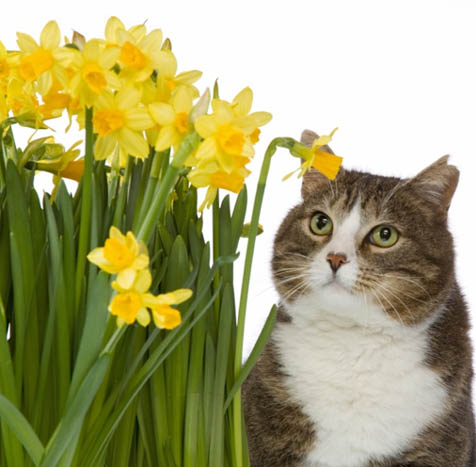Protect Your Pet From Household Dangers

As our pet’s guardians, we do what we can to keep them happy and healthy. Unfortunately, there are many common household items that can pose a threat to our pets and we need to be aware of them.

The most common cause of companion animal poisoning is from rodent poisons and insecticides. It is best to use non-lethal methods of controlling rodents and insects for the safety of your pet. Humane Have-a-Heart Traps can be purchased from hardware stores to humanely trap rodents. Prevention is key. Make sure doors and windows are sealed properly.
Aside from rodent poisons and insecticides, there are other less common, but potentially toxic household items that can pose a danger to your pet. The following should be kept away from pets:
• Cedar and pine shavings emit fumes that may be dangerous to small mammals such as hamsters.
• Chocolate is poisonous to dogs, cats, and ferrets.
• Cocoa mulch contains ingredients that can be deadly to pets if ingested. The mulch, sold in garden supply stores, has a chocolate scent that is appetizing to some animals.
• Fertilizer and plant food used on lawns and gardens can be easily accessible and fatal to a pet allowed in the yard unsupervised.
• Fumes from nonstick cooking surfaces and self-cleaning ovens can be deadly to birds. Always be cautious when using any pump or aerosol spray around birds.
• Human medications such as pain killers (including aspirin, acetaminophen, and ibuprofen), cold medicines, anti-depressants, vitamins, and diet pills can all be toxic to animals. Keep medication containers and tubes of ointments and creams away from pets and be vigilant about finding and disposing of any dropped pills.
• Insecticides used in many over-the-counter flea and tick remedies may be toxic to companion animals. Prescription flea and tick control products are much safer and more effective. Pet owners should never use any product without first consulting a veterinarian.
• String, yarn, rubber bands, and dental floss are easy to swallow and can cause intestinal blockages or strangulation.
• Human foods to keep away from pets include the following: alcoholic beverages, avocados (toxic to birds, mice, rabbits, horses, cattle, and dairy goats), chocolate, coffee grounds and beans, grapes and raisins, macadamia nuts, onions and onion powder, salt, tomato, potato, and rhubarb leaves and stems.
• Household plants to keep away from pets include the following: azaleas, daffodils, geraniums, hyacinths, irises, lilies, philodendrons, poinsettia, Sago palms
Please be aware that this is not a complete list. If you believe that your pet has been poisoned, contact your veterinarian or emergency veterinary service immediately. The ASPCA Animal Poison Control Center operates a hotline 24 hours a day, seven days a week at (888) 426-4435 for a fee of $45 per case.



